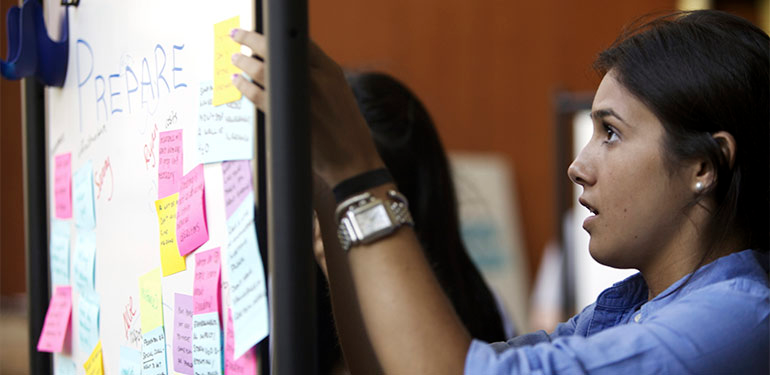Applying to engineering schools as a senior in high school was kind of terrifying for me. I had decided halfway through my junior year that instead of pursuing a liberal arts degree and applying to law schools I would try out engineering. There were no engineering related classes or clubs at my high school and none of my relatives were engineers so I wasn’t sure exactly what engineering actually was.
Very quickly after changing the focus of my college search, I made a few assumptions about what the experience as an engineering student be like:1) I would be surrounded by mostly men. 2) Engineering classes were going to be extremely difficult and competitive. 3) I probably wouldn’t have time for extracurricular activities. 4) I would only be able to graduate in 4 years if I focused solely on engineering and took a full class load every semester. This was a daunting idea but I was convinced would still be a great college experience. Coming to Northwestern, however, I was proven wrong on all 4 counts.
- I would be surrounded by mostly men.
- Engineering classes were going to be extremely difficult and competitive.
- I probably wouldn’t have time for extracurricular activities.
- I would only be able to graduate in 4 years if I focused solely on engineering and took a full class load every semester.
This was a daunting idea but I was convinced would still be a great college experience. Coming to Northwestern, however, I was proven wrong on all 4 counts.
The proportion of women to men for undergraduate students in Northwestern’s McCormick School of Engineering is roughly double the national average. While I can name that statistic, it has never been about the numbers for me, it’s about how I felt in the classroom. As a female engineer at Northwestern, I have never been the only woman in the room. There are always a decent number of women in the class and the those who ask and answer questions are not exclusively men. In fact, in a number of my classes, I have felt like the women in the class asked and answered more questions than the men. This has been a comfort and definitely raised my confidence as an engineer since I have always felt included in the discussion and like a valued part of the class.
I won’t lie, engineering classes are difficult, as are most at Northwestern University. The material is challenging and labor intensive, but never to the point where it took over my life. Part of the reason I enjoyed the engineering program and stuck with it was the collaborative nature of my peers. I have never had a class where I felt like my classmates would not be willing to work together on a problem set or help me if I was struggling with a concept. I have found a group of incredibly supportive friends within the engineering community, and especially my major, which makes even the most difficult classes more enjoyable.
Before coming to Northwestern I did not realize just how much college life was based around student organizations here, and that did not exclude the engineering school. While my workload was relatively difficult, I was still able to join a sorority, hold a job on campus, and be involved with a variety of additional student organizations each quarter. These activities have led to some of my favorite experiences and closest friends in college, and I could not be happier to have been able to get involved outside of the classroom.
I also did not realize just how many opportunities I would have here, especially in terms of pursuing academic interests. Not only have I been able to complete my engineering major in 4 years, even taking a quarter to study abroad and not take any engineering classes, but I was also able to get a second major (Economics) and a minor (Psychology) in the Weinberg College of Arts and Sciences. This has allowed me to learn about topics I found extremely interesting while still completing the degree I will utilize for my career. I was able to do all of this without ever taking a summer class.
I have been so incredibly lucky to be an engineering student at Northwestern, and looking back at my concerns from when I was just starting to apply, I more than happy to have been so wrong about my assumptions.
–Mickey Shalman
